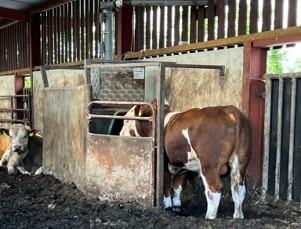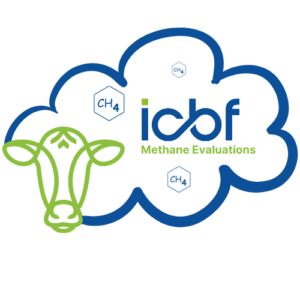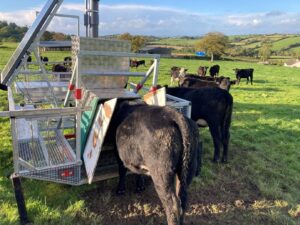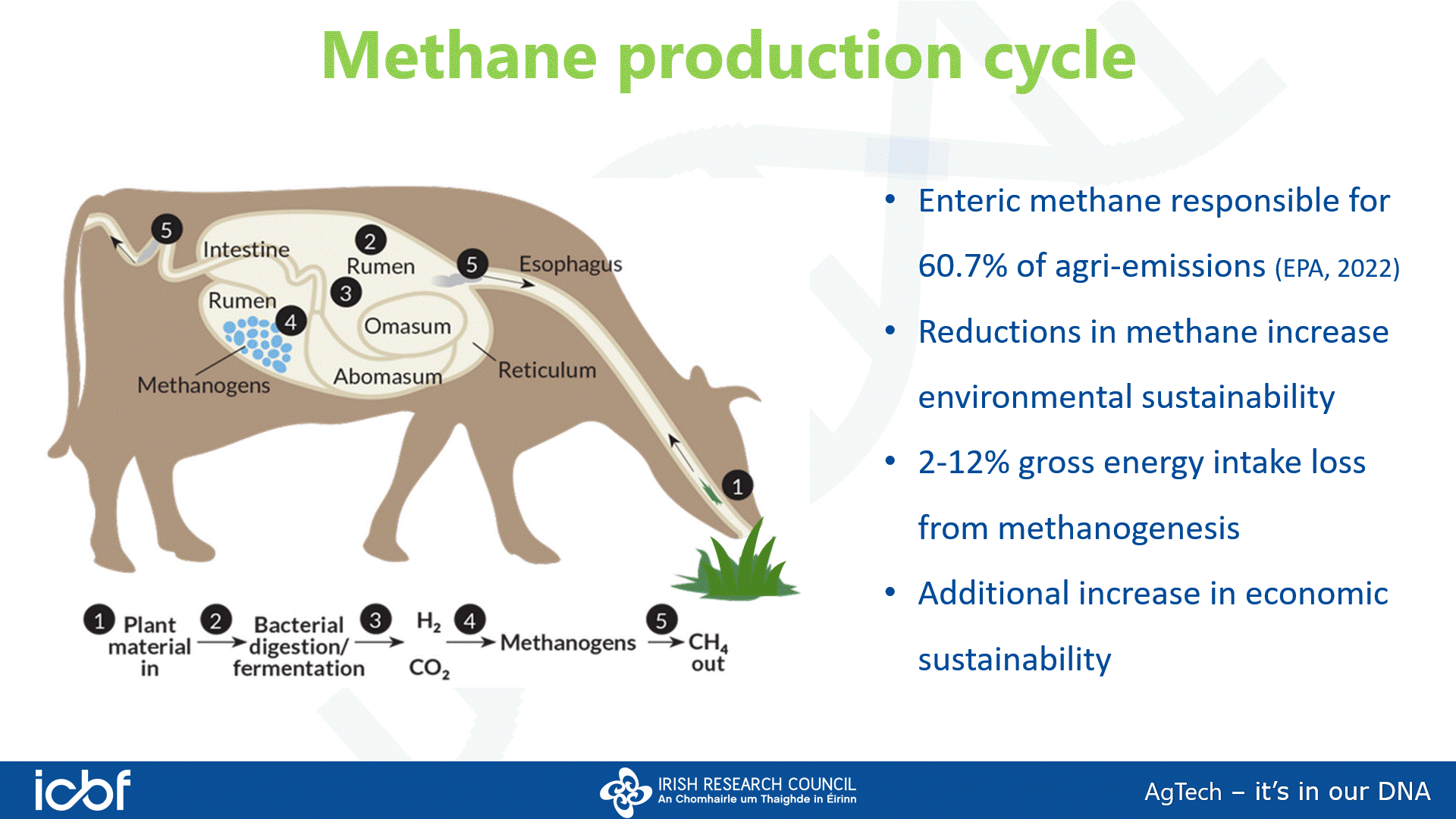Methane Evaluations now live!
Once again, the Irish agricultural industry is leading the way by publishing the first enteric methane across breed evaluations on AI sires with phenotyped commercial progeny destined for slaughter. Enteric methane is a by-product of the natural digestive process which occurs in cattle. The generation of Methane Evaluations comes as a direct result of the collaborative effort between ICBF, DAFM and Teagasc through innovative projects such as GREENBREED, RumenPredict and MASTER and funding from the Irish Research Council.
This collaboration of industry and scientists coupled with the cutting-edge beef research facility in Tully Co. Kildare will continue to allow us to provide genetic solutions to challenging traits which are long-lasting and cumulative.
Methane emissions from livestock, particularly cows, are a significant contributor to greenhouse gas emissions. Methane is a potent greenhouse gas, with a global warming potential more than 25 times that of carbon dioxide over a 100-year timescale. As such, reducing methane emissions from livestock is an important step in mitigating climate change as well as improving the efficiency of both dairy and beef cattle production systems.
How is the data recorded?
Large-scale recording programmes are required to facilitate genetic selection for reduced emissions. In Ireland, ICBF, through the Tully Progeny Performance Test Centre, has started the large-scale recording programme, using GreenFeed Emission monitoring systems.

GreenFeed is a system to monitor the metabolic gas composition of animals in a non-intrusive way. Its design and measurement capabilities have been initially tailored to the measurement of metabolic gases emitted from ruminants. The system is optimised to quantitatively capture cattle’s breath and analyse the emitted gases for trace constituents, including methane (CH4) and carbon dioxide (CO2).
The evaluations for methane emissions are powered by individual animal methane records from over 1,500 growing animals representing 19 different breeds. Research signified large differences in daily methane emissions between animals fed the same diet and 11% of these differences could be traced to genetic differences; this implies that breeding programs to reduce daily methane emissions will be fruitful especially when undertaken in tandem with the national genomic evaluations for age at slaughter released last year.
Tully Progeny Test Centre slaughters 650 animals (steers, bulls and heifers) annually, 55% suckler bred, 45% from dairy dams. These animals have a wealth of phenotypic data available, including liveweights, ultrasound muscle measurements, feed intake, carcass weight, conformation, fat and the added benefit of being genotyped and sire verified.
Interpretation and Delivery
 Genetics will play an essential role in reducing methane emissions. Selective breeding and genetic modification approaches offer promising solutions for producing cows that are less methane-intensive and more environmentally friendly.
Genetics will play an essential role in reducing methane emissions. Selective breeding and genetic modification approaches offer promising solutions for producing cows that are less methane-intensive and more environmentally friendly.
Methane PTAs (Predicted Transmitting Ability figures) will be initially available for AI sires that have had progeny with methane data recorded in the Tully Progeny Performance Test Centre. A file will be available on www.dev-icbf.com with sire and progeny details included. See Methane Evaluations to view the methane PTA’s currently available.
As the aim is to reduce methane emissions permanently and cumulatively, more negative values in PTA’s are desirable. The trait is measured in grams per day.
Future Developments
Work is now focusing on collaboration with other research entities to scale up the recording of this trait and to cover more systems of production such as grass-based diets and lactating cows. With the further accumulation of records, Methane PTA’s will become available for genotyped animals. Methods on how best to include a methane trait in the dairy (EBI), dairy-beef (DBI) and beef (Terminal and Replacement indices) are currently being developed.

This global first genomic evaluation for individual animal methane emissions in a multi-breed population of growing animals complements the other breeding strategies developed in the like of the Carbon sub-index launched last November, strengthening the arsenal of tools available to farmers seeking to reduce their environmental foot print.
Methane evaluations will become an essential part of the broader effort to improve the sustainability of Irish farming. By providing farmers with methane data, they will be able to identify opportunities to reduce emissions and improve the sustainability of their enterprise.

